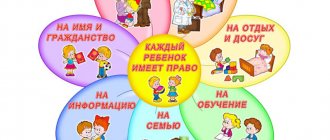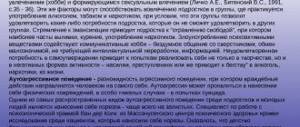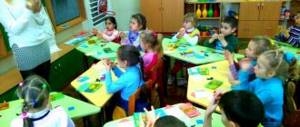Education is a complex process that consists of several points. One important element is parental authority.
Gaining authority in the eyes of daughters and sons is the care and work of parents. It consists of several factors: the behavior of mom and dad, their attitude towards work and among themselves. Each family has its own components.
Many parents think that authority is a talent that is given by nature. But that's not true. The relationship of parents to children and vice versa is a long and painstaking work.
Main types of parental authority: their typology and characteristics
Authority can be organized in every family. However, parents should not forget about the existence of several of its types. Otherwise, you can get the opposite effect.
Anton Semyonovich Makarenko was the first in pedagogical science to propose dividing authority into true and false. And if the first is one, then the second has several varieties.
False authority
False authority is an attitude of pupils towards their parents that forces them to adopt ready-made experience, both active and passive.
False authority is based on the parents' desire to achieve complete obedience. This technique does not develop the same qualities that are inherent in a successful and happy person .
According to the typology, there are several types of false authority.
- Authority of suppression: grumbling, irritation, terror, constant punishment, including physical . Such behavior provokes cruelty, lies and cowardice.
- The authority of reasoning: teachings and edifying conversations. Parents mistakenly believe that this way they will achieve positive results - but it turns out exactly the opposite.
- The authority of love: affection, tender words, confessions. This model of behavior develops a child into an egoist who takes advantage of the parents’ feelings for his own purposes.
- The authority of kindness: kindness, gentleness, compliance. Any parent tries to protect their child from everything, but you shouldn’t go too far.
- The authority of friendship. Parents truly become the best friends of their students. But the baby should understand that mom and dad are older members of the family.
- Authority of bribery. Makarenko believed that this was the most dangerous and weak-willed type. Promises and gifts are not the best way to raise a family.
- The authority of distance is based on the fact that parents try to spend less time with their children. They think that this way the baby will honor mom and dad.
- The authority of arrogance. The child himself will stop reaching out to such parents, because he will think that he is not loved and does not need him.
- The authority of pedantry. “As he said, so it will be” is the main motto of such education. However, it carries nothing but intimidation.
True Authority
True authority is what every parent should strive for. Only by setting the right goals and being accountable for your actions can you achieve it.
Do not hide your occupation, interests, and services to society from your children. Don’t make things up or exaggerate, but there is nothing wrong with making a daughter or son proud of their parents.
Adults need to know what is happening to their baby. But here you need to understand exactly where the line is between interest and espionage.
Providing assistance is one of the main components of the formation of true authority. You don’t have to wait for your child to ask for advice—you can take the initiative yourself.
Adults should not be annoying and intrusive. The child wants to know that he has a mom and dad who will always help and will not impose their opinion.
Parental authority is impossible without developing a sense of responsibility and teaching to work . Children will begin to understand that family is not only about entertainment, but also about responsibilities.
Only when the younger one listens to the demands and advice of adults is it time to talk about having authority. Remember that it can disappear at any moment if you do not support the established foundations.
Consultation for parents_Authority of parents consultation on the topic
Consultation for parents
"The Authority of Parents"
Chashchina Evgenia Aleksandrovna, educational psychologist
Modern mothers and fathers often think that the authority of parents is an outdated concept, rooted in Domostroev’s authoritarian methods of education. In most cases, parental authority is understood as the unquestioning submission of the younger to the elders. “Why does the baby need such pressure? - parents think. “He only needs our love and care.” How wrong this opinion is, mothers and fathers understand as their child grows.
The authority of parents, of course, does not mean that the child unquestioningly follows your commands and does only what is convenient for you. The parent who is always ready to take a break from his own affairs in order to come to the child’s aid works on his authority. Calm behavior and the ability to cope with difficulties, to defend one’s own and the child’s interests when necessary, the ability to act consistently, and not change one’s decisions and intentions without a reason are the main components of authority and a reason for respect on the part of the child.
Work on mistakes. What mistakes do parents most often make when they ignore the formation of authority?
- “The child knows better than us.” This is what parents think, who were “oppressed by their upbringing” in childhood and who, having broken free and discovered that nothing good came from their parents’ moral teachings, decide to let their child’s upbringing take its course. They believe that nature has enough instincts and intelligence in the child so that he can learn everything without the active intervention of his elders. Indeed, the child “knows” a lot himself, but the knowledge that nature has endowed him with is intended for life in natural conditions and in a small human community. Thus, the child “knows” well that at elevated temperatures it is better to give up food and switch to juice, but does not know how harmful it is to overeat on chips and candies.
- “What can I give him?” This attitude indicates that parents have low self-esteem. More often than not both, but one of them. For example, a mother who did not have time to make a career before the birth of her child, and now is forced to become a housewife for some time. She is so tired from washing, cooking, walking, lack of sleep that it seems to her that life is over, and she herself is weak, tortured, uninteresting. Such a mother becomes not an authority figure for the child, but a service personnel.
- “I’m smart, but dad is stupid.” This is the position of parents who simply do not show respect for each other. Thus, they do not create, but undermine their authority. It happens that not the parents themselves, but representatives of the older generation, grandparents, treat their children like disobedient teenagers. The kid immediately concludes that his mother and father cannot yet be educators: they themselves are small and unintelligent.
Ways to undermine your authority in the eyes of a child:
- Physical punishment. Assault is a great way to make a child feel afraid and humiliated. The educational formulas “fear means respect” and the logic-defying “spank so as not to cry” are suitable if a harmonious relationship with the child is not part of the parents’ plans.
- Losing control of yourself. Raising your voice, taking out your anger on your household, falling into hysterics - these are sure ways to show your child your weakness and unreliability.
- Devaluation of the child's feelings. Common phrases for a child’s upset, such as: “Don’t be upset about nonsense,” “Someone is 100 times worse off than you,” as well as rejection of his bad mood are a great way to let him know that his feelings don’t matter and no one is interested.
- Conflicting demands on the child. Conflicting demands on his behavior and inconsistency in prohibitions and punishment will help make a child doubt whether he can trust his parents with his upbringing.
- Excessive democracy in communication with the child. Creating a situation where the child has the impression that there is a girlfriend, but no mother.
- Ingratiating yourself with a child. In order for a child to understand how difficult it is for parents to choose a line of behavior with him, one should choose an apologetic tone in conversations on controversial issues - this will definitely let him know who is in charge here.
- Shifting responsibility to the other parent. To show the child who in the family does not decide anything, you need to send him to the other parent more often with the words: “Ask mom/dad.”
- Involving others in raising the child. Complaining about a child to others or otherwise discussing the child in his presence, making fun of him, even as a joke, is a great way to humiliate not only the child, but also yourself in his eyes.
- Taking the other's side in a conflict. To indicate to the child that the authority of teachers, doctors, neighbors is always more important than his opinions and feelings, parents should automatically take the side of the other adult in any conflict. To be sure, you need to force the child to apologize when he does not feel guilty.
- Inability to build a relationship with your spouse. Children have a hard time dealing with difficult family relationships. Quarrels between parents cause fear and a feeling of defenselessness.
- Drinking alcohol and smoking.
- Inability to admit one's own mistakes. The inability to apologize or the desire to always justify one’s most unseemly actions shows that the person himself has not yet matured enough and formed as a person.
In order for a child to recognize your right to advise and educate, some effort must be made. Follow the 10 Commandments of Authoritative Parents and your efforts will pay off.
- Don't lose your self-respect. If you are overwhelmed with daily responsibilities and have nowhere to look for help, try cutting them down a little. This is necessary to be able to come to your senses.
- Treat each other with respect. It is important that all family members understand this and do not allow disdainful, mocking intonations in a conversation with any member of the household.
- Don't allow yourself to be treated with disrespect. Know how to, avoiding rudeness, put a boor in his place in a store, in transport, in the yard. Let your child see that you can stand up for yourself.
- Stand up for your child if he is unfairly offended. This does not mean that you should always interfere in children’s games and rush to protect your child for any reason. But do not deprive your child of your support when he really needs it.
- Answer your child's questions. Your knowledge and competence are not only an opportunity for him to obtain the necessary information, but also another reason for respect.
- Don't deceive your child.
- Don't let your child down.
- Do not change your decisions unreasonably. If you decide to punish a child for some offense by depriving him of sweets or watching cartoons, follow through with the punishment and do not give in under the pressure of tears and whining. If you give up, the authority will suffer greatly, because the child will decide that he can always turn things in his favor with the help of whims.
- Never punish a child rashly. First, make sure that he is actually at fault. Undeserved punishment will be remembered for a long time and will damage parental authority.
- Try not to express panic, uncertainty, or impatience if you find yourself in an unpleasant situation. First of all, the parent who is authoritative is the one you can rely on in any, even the most difficult, situation.
Thus, the authority of parents grows when parents combine caring and reasonable demands in their approach. Parental authority is acquired through years of dedicated work by both parents and is an important component of the success of raising children in a family.
Factors influencing the formation of authority
Authority is respect between parents and children, and the basis of a healthy relationship. In order for it to arise and not disappear, several conditions are needed.
It is important to understand that students try to imitate their parents. This is especially true for preschool children. The child adopts any model of behavior - both positive and negative. Therefore, first of all, parents should educate themselves.
A child respects mom and dad when their words and actions do not differ. Children notice every little thing, so parents should always set the right personal example.
Kids respect those adults who are ready to help them, understand, and listen. Children need demanding but reasonable attitude and love.
Pedagogical tact is something without which it is impossible to imagine the educational process. This means that parents understand and take into account the individual characteristics of their child.
Most often, problems in the family arise when there is no organized system. Alcoholism, improper relationships between parents, quarrels in front of children, prejudices and superstitions destroy a fragile personality. It will not be possible to organize any kind of authority in an environment in which there is no place for love, mutual respect and correct values.
Parent meeting "The Authority of Parents"
Tatyana Klochikhina
Parent meeting "The Authority of Parents"
Target:
1. Deepen parents’ knowledge on issues of “ Parental Authority ”
.
2. Give parents the opportunity to share their experience of “ guardian authority ”
and lead to an analysis of your own teaching experience.
Methodology.
Hello dear parents , my name is Tatyana Georgievna, we will discuss with you the problematic situation “ The Authority of Parents ”
,
But first, let's get to know you. Now you and I will stand in a circle and let out this beautiful ball, you will introduce yourself and say what kind words you said to your child this morning.
Now we are a single whole, and on equal rights.
1. Now let’s imagine a portrait of your child, and how you would like your child to look.
2. Whoever has the perfect child, raise your hand.
3. Does your child always obey you?
4. Do you ever have such a situation? The child doesn’t listen, you don’t have time.
Well now let's move on to our problem “ Parental Authority ”
I'll give you the situations. You read it, and I will divide you into 2 teams “ Parents ”
,
"Children"
.
I listen to situations.
. There are several techniques for working with children's disobedience and stubbornness. It is necessary to analyze the situation together with the child, and not instead of him.
Now let’s do a relaxation exercise.
We close our eyes.
Imagine your baby playing with you on the sand, and next to you is the sound of the sea, it feels so good to you and you are not worried about anything.
Now turn your back on the pestilence.
And you will see an island, go to this island, you see how many trees there are, find your tree and grab it and see how many branches and leaves there are on it.
Now open your eyes.
You see pieces of paper and pencils lying in front of you.
Draw the tree you imagined.
Look how many leaves there are on your tree - this is your big, friendly, strong family.
Let us sum it up.
Every child grows up in a family or in an environment that replaces everything good and positive skills and qualities are laid, first of all, in the family in a preschool educational institution.
In our problem, we did not seek to cover in its entirety the issues of “ Parental Authority ”
. We have highlighted only those aspects that often lead to problems due to disobedience.
This concludes our parent meeting .
Thank you for your attention.
Expert opinion: Parents often do not distinguish between the types of power in the family.
-authority , characterized by relationships between a child and adults, which are formed under the influence of respect for parents ;
- reward in case of socially approved (expected)
behavior and punishment – for socially condemned behavior;
— law in the family is the only form of extrapersonal power, when the bearer and interpreter of the rules of behavior for the child are adult family members, parents .
Common mistakes in family education
One of the reasons for constant conflicts is control. Most often, problems arise when parents forget that the child is a full-fledged person.
To maintain conflict situations, psychologists offer several ways:
- achieving peace at any cost;
- desire to win - an adult always tries to win any argument;
- compromise is the most suitable option;
- avoiding the problem.
Both authoritarian parenting and the absence of any control lead to the same consequences. Therefore, it is worth looking for intermediate options.
Psychologists identify several behavioral models:
- parents constantly say in a commanding tone what needs to be done;
- the child expresses his opinion, but adults do not listen to him;
- the baby makes his own decisions, but the parents still remain aware of all his actions;
- The child makes almost all decisions independently;
- Pupils themselves choose whether to listen to their parents or not.
The influence of parental authority on the development of a child’s personality
In education, psychologists distinguish several styles. They determine the characteristics of the relationship between parents and the child and his personal development.
- For democratic parents, it is important that children are disciplined and independent. They make sure that the child does the right thing, but they do not put pressure on him. Reasonable care and warm feelings are the basis of this model of behavior. Usually in such relationships there is no place for conflicts, worries and irritations.
- For authoritarian parents, the complete subordination of the child is important. Prohibitions, control and instructions are the basis of this educational model. Mostly, withdrawn and conflict-ridden children grow up in such families. Lack of independence and self-doubt complement this image.
- One of the most difficult educational phenomena is hypoprotection. With this model of behavior, parents are not at all interested in the lives of their children. This attitude is especially detrimental to teenagers who need an example of a responsible and confident adult.
- The opposite of the previous attitude is overprotection. It is characterized by excessive care and control over the child’s life. Lack of independence, passivity and lack of friends are the consequences of this model of behavior. This also includes too high expectations.
Mom's authority
Both mother and father contribute equally to the formation of the child's personality. However, each parent also has their own functions.
Mother is the keeper of the home. She is responsible for support, guardianship and care. For a child, a mother means love and confidence in her importance.
Since women are no longer just housewives, they also teach their children to be independent. Often mothers do not notice how they take on the functions of the father or forget about their desires and interests. Find out why a good mother is, first of all, a happy and accomplished woman.
The authority of the pope
A father is a guarantee of security. Historically, it was the man who taught children moral standards of behavior. Competence and education are the influence of the father.
In modern families, there is often a substitution of the values and roles of parents. And that ideal scheme - a weak mother and a strong father - is practically nowhere to be found.
Psychologists advise parents to act together and not take away each other’s responsibilities. This is the only way they can raise a healthy and successful personality.
Advice from a psychologist to increase your authority
Not every parent will decide to seek advice from a family psychologist. However, experts can really give good advice , the main thing is to follow them.
Also, a clinical psychologist will rule out the presence of such psychological problems in the student as:
- anxiety disorder;
- attention deficit;
- teenage depression;
- psychosis, etc.
We can talk about the formation of authority only if the child is psychologically healthy. Perhaps his behavior is not due to whims or pampering, but to a psychological problem that needs to be solved.
How can parents regain and gain authority from their child?
- See the student not as a stupid person, but as a small personality.
- Explain the reasons for any refusal.
- Always give your child a choice.
- From an early age, instill a sense of responsibility in your child.
- Do not ignore your daughter or son and their problems, even when they seem insignificant.
Find out what questions parents should ask themselves in order to raise a psychologically healthy personality.
How to gain authority from a child in a single-parent family
If divorce is an inevitable phenomenon, you need to take care not to cause psychological trauma to the child and explain that what is happening is not his fault. Read here how to help your child survive their parents' divorce
Raising a child in a single-parent family is always a difficult path. However, what kind of person the baby will grow up to depend on the adults and their position.
- A parent should not take on the functions of both mother and father - this is an impossible task.
- A child always follows the example of adults, and since in single-parent families there is only one parent, he must educate himself.
- Do not arouse feelings of pity in your child and do not focus on the fact that there is not enough help from the mother/father.
- Do not remarry if the child does not get along with the new family member.
- Sometimes put everything aside and spend time with your baby so that he doesn’t feel lonely. Where you can go on the weekend to spend time not only interestingly, but also usefully, find out here.
Raising a happy and successful person is very difficult, but possible. And a true healthy authority will make this task easier for parents.
Parent meeting on the topic “Parental authority”
Parent meeting.
Topic: “The authority of parents. What is it made of?”
Ukrainian folk wisdom says: “A person has three misfortunes: death, old age and bad children.” Old age is inevitable, death is inexorable, but the third misfortune is probably to some extent our fault, the fault of our parents. Somewhere they overlooked, misunderstood, and at one fine moment the parent says: “I was, it seems, a normal, obedient child, and suddenly he smokes, is rude, slams the door... What happened?” Has this ever happened to you?
Today at the meeting we will talk about how you, parents, can build your relationship with your child so that you are a worthy and true example for your children, so that the child listens to your parental opinion someday (at the presentation award “Best Musician” or “Writer of the Year”) your child said: “Thank you to my parents for being a model and an authority for me...”
The theme of our meeting is “Parental Authority.”
Now I will read to you the words of the greatest teacher Vasily Sukhomlinsky, and you will think about what mistake this teacher is talking about about parents: “There are
parents who are like a gardener who, not knowing what kind of seed he threw into the ground, came a few years later to look and was very surprised that instead of a rose a thistle grew.
And it would be even funnier to see the gardener’s manipulations if he began to tint and paint a thistle flower, trying to make a rose flower out of it...” Tell me, what is wrong with the parent’s behavior? /It shows that at first parents don’t pay attention to the child, and then they try to correct their child’s behavior when it’s too late to correct/
Parents are a tuning fork for a child: how they sound is how he will respond, but we all want to raise our children as worthy people, and without the authority of a parent, education is impossible. The meaning of authority is that it is accepted as the undoubted dignity of the elder, as his strength and value
. Authority can be organized in every family. There are parents who organize authority on false grounds. They strive for children to obey them - this is the goal. But in fact, this is a mistake. Authority and obedience cannot be the goal; there can only be one goal - proper upbringing.
Teacher Makarenko identified several types of “false” authority. I will tell you their names, and you try to remember situations when such authority can dominate a child in a family. (The name of the authority, printed in advance, is attached to the board.)
1. Authority of Suppression
. This is the most terrible kind of authority. Fathers enjoy this authority most of all.
/Parents give an example of the situation/
For example: If the father is always angry at home, grabs his belt at every opportunity, and marks every child’s guilt with punishment - this is the authority of suppression. Such paternal terror keeps the entire family in fear. He intimidates children, makes the mother a zero creature who can only be a servant. He doesn’t educate anything, he only teaches children to stay away from their older dad, he evokes children’s lies and human cowardice, and at the same time fosters cruelty. Downtrodden and weak-willed children turn out to be either sluggish, worthless people, or tyrants who spend their entire lives avenging their suppressed childhood.
2. The authority of distance.
/Parents give examples of situations/
For example: There are some parents who are convinced that in order for their children to obey, they need to talk to them less, stay away, and occasionally act as bosses. Such authority does not bring any benefit. Children grow up unsociable and find it difficult to get in touch with their peers.
3. The authority of swagger.
(Swaggering is vain pride) This is a special type of distance authority, more harmful.
/Parents give examples/
For example: Some parents believe that they are the most important and show this at every step. Astonished by this appearance of the parents, the children also begin to swagger. Such children do not get along well in a team, since, in their opinion, there are no people worthy of them.
4. The authority of pedantry.
(Pedantry is excessive formalism)
For example: In this case, parents pay more attention to their children, work more, but work like bureaucrats. They are confident that children should listen to every parent’s word with patience, that their word is sacred. Location is given in a cold tone, and it becomes law.
5. The authority of reasoning.
(A reasoner is a person who loves moral teaching)
For example: Parents eat up their children’s lives with endless teachings and edifications. Parents are sure that the main pedagogical wisdom lies in the teachings. There is little joy and smile in such a family. Over time, children will move away from their parents, and in such a family there can be no mutual understanding between children and parents.
6. The authority of love.
The most common type of authority.
For example: Many parents are convinced that in order for children to obey, they need to love their parents, and in order to earn this love, it is necessary to show their children their parental love at every step. Such a family is so immersed in a sea of sentimentality and tender feelings that they no longer notice anything else. This is where family egoism grows. This is a very dangerous type of authority. He breeds insincere and deceitful egoists. Often the first victims are the parents themselves.
7. The authority of kindness.
For example: Parents act as a good angel. They allow everything, they are not stingy, they are wonderful parents. Very soon, in such a family, children begin to command their parents. This is the most stupid kind of authority.
8. Authority of bribery.
For example: Many parents associate the concept of “happy childhood” with unlimited provision of material pleasures to the child. But they lose sight of the fact that education based on reliability creates a consumer, an egoist, that consumer happiness does not please, it does not prepare for life, the discipline of desires has not been developed, and sooner or later it comes into conflict with social requirements.
Conclusion:
Authority is necessary in the family. Real authority is based on your civic activity, on your civic sense, on your knowledge of the child’s life, on your help to him and on your responsibility for his upbringing. — Strictness in upbringing involves a combination of high parental demands with respect for the child as a developing personality.
V.A. Sukhomlinsky saw the reason for the appearance of self-will and disobedience in a child “... in the inability of parents to use parental authority; The point is that coercion is recognized and experienced by the child as an evil force that suppresses his will. Parental authority should encourage and spiritualize the child’s inner strengths - his desire to be good. Literally every child has this desire, and with your subtlest instrument - parental authority - you need to approach the child in such a way as not to break this not yet solid, fragile spiritual impulse. If you turn smart, wise power into despotic violence, the fragile desire to be good will burst, and the most alarming thing that can happen in the soul of a child will happen. Respect the child's desire to be good, take care of his movement of the human soul, do not abuse your power. Remember that your son, your daughter is the same person as you.”
Let's now draw up a reminder ( Appendix 2)
about what your authority should be so that the child grows up, first of all, happy. Write your opinion. And you will take this reminder home.
We recommend reading:
NGN, types of subordinate clauses Entertaining geography grades 5-6 Russian language Texts for the first lessons of the school year Rhetoric Trainings for parents that will help establish peace in the family
Share with friends:





